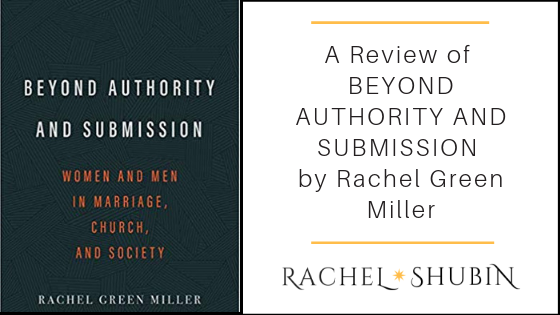Marriage, Church, and Society by Rachel Green Miller
Who Is Rachel Green Miller?
I’m delighted to report that my friend Rachel Green Miller from my old Wilson-hassling days has written a new book. (While I was researching Doug Wilson’s fun church sex abuse cases, she was looking into his charming plagiarism problems, so we had some mutual interests.)
For several years now, Rachel has also been the proprietress of the very incisive and thoughtful blog A Daughter of the Reformation, which covers Reformed history while keeping an eye on practical theology. She was highly vocal on the “gosh, no!” side during the ESS debate a few years ago. (If you don’t know what that is, it was basically a repackaging of the old Arian heresy but with a shiny new coat of gender-based male authority/female submission tied to Jesus’ earthly submission to the Father thrown in to make it popular again. You can Google the rest.)
That’s all to say she’s smart, well-researched, and has the street cred to write a book called Beyond Authority and Submission, which is exactly what she has done.
What is this book about?
Beyond Authority & Submission is an excellent book for a very specific audience, namely the complementarian who is questioning the way things are and the whys of what they have been taught. I wish this book had been available a few years ago when I went through that unpleasant questioning process myself.
What makes this a good fit for the questioning complementarian is careful way Rachel walks the line. She is squarely in the camp of ordained church leadership being comprised solely of men, and she repeats this several times throughout the book. She isn’t trying to completely dismantle the entirety of the conservative view.
With that out of the way, she turns her focus to the parts that are founded not on Biblical ideas but rather have been borrowed or inherited from other cultures over time, specifically the Romans and the Victorians. Numerous extraneous restrictions have been piled onto women over the years and mistakenly identified as Biblical. Rachel does a fine job of tracing this history of these ideas and effectively dismantling them.
Who will get the most out of this book?
If you are currently experiencing the brain fog that comes with trying to figure out why what you’ve always heard that the Bible says doesn’t seem to line up with what you are reading in it yourself on this topic, then this book will be a huge help and relief to you. Rachel has done a huge service and a great job.


Leave a Reply